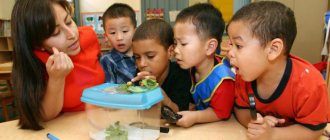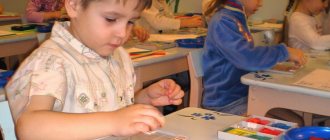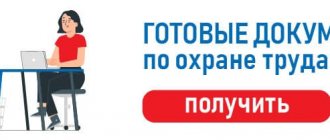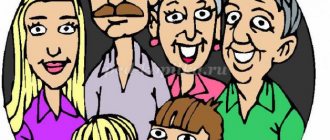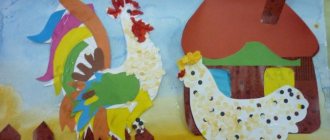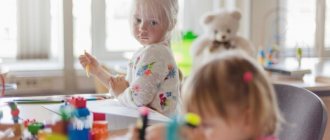Do you remember that warm feeling, distant, from childhood. When you walk with your mother by the hand, you go up the stairs and find yourself in a large room. Everywhere there are cabinets of different colors and with different designs: behind the red door with the typewriter hangs Misha’s jacket, and behind that green door with a cherry hangs Lera’s backpack and raincoat. You slowly change your clothes, and then you go to the kind and smiling, always cheerful and loving first teacher. In the memory of many, the teacher is the second most important person after mother and grandmother.
It was this charming girl or already an adult woman who instilled in us a love of animals and nature, taught us to tie shoelaces and count with counting sticks. And she treated everyone in a special way, like family.
The formation of a future member of society begins with the kindergarten and teacher. Therefore, being a teacher is important, honorable and very significant! Today we will try to find out what a good teacher should be able to do.
Features of the profession
Being a teacher is not only an honor, but also very responsible.!
After all, it is at the age of 3 to 6 years that many skills and abilities are formed, your baby’s cognitive abilities are improved, his horizons begin to expand, and his first ideas about the world appear.
And all this happens under the guidance of the first mentor - the educator!
Who, if not a preschool teacher, will teach you how to cut with scissors, draw, and then write? Who will teach poetry and read fairy tales? Teach friendship, honesty, attentiveness and kindness towards children, adults, animals?
It is impossible to overestimate the importance of this person in your child’s life, but sometimes, on the contrary, you can underestimate!
Responsibilities of a kindergarten teacher
The responsibilities of a preschool teacher are specified in a number of regulatory documents, such as an employment (collective) agreement, job description of a teacher, rules and regulations of the sanitary and epidemiological station, etc. These documents regulate the activities of a preschool teacher.
Now preschool education is developing taking into account the intensive introduction of innovations into the pedagogical process. Therefore, new, modern requirements are currently being put forward for the activities of the educator. The work of a preschool teacher should be based on four components:
The pedagogical process in a preschool educational institution is carried out on the basis of pedagogical interaction between the teacher and the child. Therefore, the teacher must be professionally competent.
“The level of professionalism of a teacher is determined by professional competence - the ability to conduct teaching activities efficiently and effectively based on job responsibilities, scientific education and value attitude towards pedagogy as a type of activity.”
The competence of a preschool teacher is determined by the fact that he has the necessary attitudes, values, corresponding personal characteristics, theoretical knowledge, and professional qualities to carry out pedagogical activities, which must be constantly improved through self-education.
The teacher must have certain professional competencies
The professional competencies and responsibilities of a kindergarten teacher include:
What should a modern teacher be like?
A good modern teacher is a kind of quintessence:
- good education;
- manners;
- love for children;
- pedagogical excellence;
- creative potential.
His work is constant work on himself, his thoughts and actions. Today, the requirements for a teacher, made both by parents of students and directors, and by the public as a whole, are as follows:
- A good education.
- A set of personal and professional qualities.
- Competent speech of the teacher.
- A decent appearance and image of a teacher in the eyes of the public.
- Special knowledge, skills and abilities necessary for a teacher.
This list is not complete and has many more additions. Let's try to consider each of the points in more detail.
What kind of education do you need to have?
A preschool teacher, by definition, is a person who has received the appropriate secondary specialized and/or higher education.
Today, most employers require a potential applicant to have a higher education in the field of “Preschool Pedagogy”. However, as experience shows, sometimes college education is enough for a good teacher. This is due to the number of hours of practice, which are more within the vocational education system than at universities.
During his specialized education, a preschool teacher masters disciplines in the following areas:
- Age-related psychology.
- Physiology, anatomy and hygiene.
- Methods of teaching mathematics, drawing, physical education, reading, counting and applied arts.
Thanks to this, in the course of his work, one teacher is able to teach your child the basics of counting and reading, drawing and music .
A set of personal and professional qualities that must be possessed
You cannot teach a child without showing him a personal example. A child in preschool age relies not so much on the words of an adult, but on his behavior. Therefore, serious demands are placed on the teacher’s personality.
It is unlikely that a person who does not have such qualities as humanity, responsiveness, honesty, respect for juniors and elders, diligence, goodwill, etc. will be able to teach a child any of the above.
No less demands are placed on professional qualities. The teacher should always focus on the interests of the children, not have “favorites ,” and treat everyone equally with love and respect. Accept that each of his pupils is a small child, but at the same time an individual.
The professional qualities of a teacher also include his desire to educate his students, hard work, and the ability to set goals and achieve them during the educational process.
Grammatically correct speech
In the tender age of childhood, when the child’s vocabulary is just being formed, but is growing very quickly, it is necessary that the language environment around is clean, correct, without slang, bureaucracy and cliches.
The teacher’s speech should be simple and understandable to the child, but at the same time clear and concise.
Correct accents and pronunciation are very important, because a child enriches his vocabulary by relying on the adults around him, and the role of the teacher in shaping the child’s speech cannot be underestimated!
Appearance and social image
Unlike schools, preschool institutions do not set strict limits on the appearance of teachers, however, there should be clear limits here too.
How does a kindergarten teacher dress? It is unacceptable for a teacher to come to work in open T-shirts, blouses and shirts with a deep neckline or made of translucent materials.
Short dresses, skirts, ripped jeans, bright hair colors, piercings and tattoos are also unacceptable - all this will have to be left outside the educational institution. The image of a teacher should emphasize his professional qualities , and not the charms of his figure.
It is also necessary to emphasize that in our time, when social networks have become ubiquitous, a teacher should not post compromising photographs of himself on his pages on VKontakte, Instagram or Facebook.
The image of a teacher, including on social networks, should inspire trust and respect among parents.
What should you know and be able to do?
As we said earlier, during the course of his training, the future teacher becomes acquainted with the peculiarities of the psychology of children of primary school age.
Also, all teachers undergo courses in physiology, hygiene, and medicine.
This is necessary not only to teach the child simple rules for caring for his body, but also so that in case of emergency, the teacher can provide assistance to the students.
The teacher needs to know what to do if his pupils have a fever or rashes , what to do if the baby does not feel well or there are significant changes in his behavior.
Sometimes a teacher needs to be a subtle observer in order to see and feel what is happening with the children entrusted to him.
Humanity, tolerance and tact
The fundamental triad of a good teacher is humanity, tolerance and pedagogical tact . It is the educator who must instill in the child humanity towards the peers and adults around him.
Under the strict guidance of the teacher, the child must learn to solve problems in communicating with children, learn not only to be friends, but also to forgive offenders.
An equally important quality is tolerance. The teacher must be impartial and accept his students regardless of who their parents are.
It is also important that the teacher treats the child as a whole person. A good teacher understands that his students are equal people and will not allow himself to raise his voice or insult the child.
The final quality of our triad is pedagogical tact. A qualified teacher always takes into account the individual characteristics of each child and tries to help overcome difficulties, and never emphasizes the weaknesses of his students.
Professionally significant qualities of a teacher in a preschool educational organization
Irina Pokholok
Professionally significant qualities of a teacher in a preschool educational organization
At the end of the 19th century, the research of P. F. Kapterev, an outstanding Russian teacher and psychologist, proved that one of the most important factors in the success of pedagogical activity is the professionally significant qualities of the teacher . He pointed out the need for a teacher to have such qualities as modesty, observation, hard work, determination, perseverance, but a special place was occupied by such qualities as artistry, oratorical abilities, and wit. Particularly important qualities of a teacher’s personality include readiness for empathy, i.e., understanding the mental state of students , empathy and the need for social interaction.
In the works of scientists, much attention is paid to pedagogical tact, the manifestation of which expresses the general culture of the educator and the high professionalism of his teaching activities.
• high civic responsibility and social activity;
• high professionalism ;
• the need for constant self-education;
• intelligence, spiritual culture, desire and ability to work together with others;
• physical and mental health, professional performance .
Today, a huge number of articles, essays, and books are devoted to the topic “What should a modern teacher be like?” On this issue, most opinions differ and very interesting answers are given.
Sh. A. Amonashvili in his “Reflections on Humane Pedagogy”
interprets one of the basic guidelines
of the educator of the humane pedagogical process as follows: “Loving a child for me is not just an idea, but the law of the educator . But it's not that. This law is indeed very old, classical, and even authoritarian pedagogy, despite its childlessness, proclaims it as the most important professional feature of a teacher .
The point is not so much that you need to love a child, but how to love a child, how this law can actually be implemented.” Another quality of a teacher’s personality , expressing his “ educational power ,” can be considered “charisma.” Translated from Greek, the word charisma means “favor shown, gift,” it is deciphered as unusually great abilities or exceptional talent, causing others (primarily children)
a feeling of complete trust, sincere admiration, ennobling spirituality, readiness to follow what the teacher teaches, genuine faith, hope, love. But, above all, such a teacher knows how to creatively relate to himself as an individual: the use of one’s own capabilities reaches its highest form in such a teacher.
A special combination of personal and business qualities distinguishes a creative person, who is characterized by such properties as creativity (originality, clarity, heuristics, activity, imagination, concentration, sensitivity). A creative teacher is also characterized by such qualities as initiative, the ability to overcome the inertia of thinking, independence, determination, a sense of what is truly new and the desire to understand it, observation, breadth of associations, and developed professional memory .
A teacher's creativity and creativity can manifest itself in a variety of forms and methods of creative self-realization. Self-realization is a form of application of the individual’s individual creative capabilities. The question of pedagogical creativity has a direct connection with the problem of teacher self-realization. In this regard, pedagogical creativity is the process of self-realization of the psychological, individual, intellectual strengths and abilities of the teacher’s personality.
Also, one of the qualities of a teacher is a focus on a certain type of communication .
The authoritarian style of pedagogical interaction is characterized by a more demanding and less respectful attitude towards students . An authoritarian teacher builds his work on the basis of dictate, pressure, and psychological pressure. It is important to pay special attention to the fact that students are afraid of such a teacher and try to fulfill all his demands just to avoid getting into trouble. Children outwardly curry favor with him. An authoritarian teacher does not enjoy trust in the children's team and has imaginary authority.
The permissive style of pedagogical interaction is characterized to a greater extent by respect and to a lesser extent by a demanding attitude towards students . a teacher does not enjoy authority among children , since preschoolers feel his psychological weakness; he is not consistent in his actions, is scattered, and often does not bring his demands to their logical conclusion. A respectful attitude towards children gives them the impression of a frivolous, good-natured person, generally good, but who is not required to obey. The discipline in the lessons of such a teacher is bad , the group is noisy, the children do not listen to explanations. A permissive style also has negative consequences. Often preschoolers express dissatisfaction and protest against this style of leadership, since ultimately the imaginary freedom has an exhausting effect on the children themselves. The facial expressions of a liberal teacher often express good nature, but at the same time some nervousness. His posture indicates indecision and self-doubt.
An anti-pedagogical style of interaction with students is unacceptable in the practice of teaching . This style is characterized by low demands and a disrespectful attitude towards children. A teacher who acts in a non-pedagogical manner introduces confusion and uncertainty into the students’ assessment of their behavior , destroys moral values and cognitive interests, and gives rise to personal alienation. Such a teacher is socially dangerous.
Thus, the main professionally significant qualities are :
Source
How to become a good mentor?
They say that a good teacher is not made, but rather born . However, this is a rather controversial statement. Our editors agree that it’s all about the desire to learn and develop.
A good teacher is a person who sincerely loves his profession, loves children and what he teaches.
In order to become a truly good teacher, you need to constantly learn and develop , analyze your successes and failures and move on.
The role of the kindergarten teacher is very often underestimated, because his influence on the child is not always easy to notice. But in fact, this is the first adult after mom and dad who has a very serious influence on the formation of views, worldview, and he is there at that crucial moment when your son or daughter begins to realize himself as an individual.
Pedagogy is my calling
A teacher in a children's educational institution is not even a profession, but a real calling, and also daily hard work. To become a teacher for a long time and seriously, you need to feel that pedagogy is the work of your whole life, and work conscientiously, passing on to children the best that is in you, giving your whole soul.
Vasily Sukhomlinsky, an internationally recognized ideologist of humanistic pedagogy, emphasized that he is a real teacher whose activities are aimed at educating a humane personality.
According to V. Sukhomlinsky, a real educator should:
If the qualities of the teacher correspond to these humanistic principles of pedagogy, he will be able to raise the child to be an attentive, noble, kind, intellectually developed, patriotic, not indifferent to the problems of others, cultural, responsible, honest, tactful, sensitive, hardworking person.
Watch a video about the content of the teacher’s activities
Personal characteristics
What personal qualities should be inherent in a good teacher of a children's educational institution? Let's look at them:
Without a creative component, the work of a teacher will not be effective
"Advice. It is very important to respect the child's personality. This means being able to communicate with him, listening and understanding his needs, not getting irritated by disobedience, finding ways of tactful and persistent pedagogical influence, seeing the best in the child.”
The list of necessary personal qualities of a preschool teacher can be continued. In addition, the teacher must have a number of professional knowledge, skills and abilities that are important for the successful conduct of educational activities in a children's educational institution.
